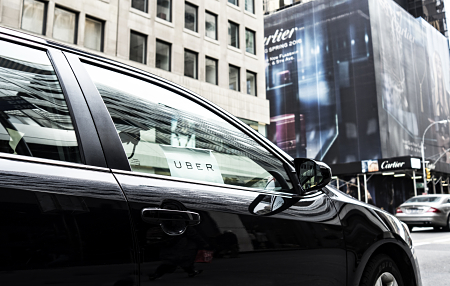More than 1,000 New York Uber drivers have formed an association to fight for drivers’ rights in the rapidly expanding ride-hail industry.

The association, known as the Amalgamated Local of Livery Employees in Solidarity (Alles), was formed only days after Uber agreed to a $100 million settlement with drivers in California and Massachusetts.
The National Labor Relations Board recently blocked the formation of a traditional union by Uber drivers. Alles, not a union, will be able to bring grievances to companies such as Uber and Lyft but not set fares.
Alles said it would work to protect members against car companies, insurance firms and others, while urging New York City and state to tighten regulations on Uber and its ride-sharing competitors.
“Since Uber management controls the fares charged for the service, drivers want and need security and protection,” the association said in a statement. “Uber financiers are forcing drivers to work long hours without any benefits or labor law protections.”
The April 21 settlement, which still must be approved by a San Francisco federal judge, provides for a $100 million payout to drivers in those two states on the basis of how many miles each has driven for Uber.
As a part of the settlement, the company can still treat drivers as contractors, but it agreed to allow them to form drivers’ associations.
The case against Uber had been closely watched in Silicon Valley, as other companies in the on-demand tech economy share Uber’s reliance on independent contractors. The class action had been scheduled for a trial in San Francisco federal court in June.
Nothing in the settlement prevents a court, or U.S. labor authorities, from deeming Uber drivers employees, an attorney for the drivers said in a statement.
“Drivers are struggling to make car payments, maintain their vehicles and still have enough money left over to support their families, said Kevin Lynch, co-chair of the association. “It shows that people are really hurting,” he said.
Uber, along with Lyft and other competitors, enable passengers to ask for rides with a smartphone app that sends the request to drivers who use their own cars. Many of the drivers are part-timers.
The business model has come under sharp criticism from established taxi companies and many cities and states because the drivers are unlicensed and the fares are untaxed.
A class-action suit by Uber drivers in California and Massachusetts claimed Uber drivers were employees and thus entitled to reimbursement of expenses. The company insists drivers are independent contractors.
In a blog post, Uber CEO Travis Kalanick admitted the company hasn’t always done a good job working with drivers.
Boston-based labor attorney Shannon Liss-Riordan, who represents the drivers, called the settlement historic. The lawsuits hinged on whether drivers were misclassified as independent contractors, instead of employees.
“Uber will only be able to deactivate drivers from the Uber platform for sufficient cause, and drivers will be provided with at least two warnings prior to many types of deactivations, a written explanation of the reasons for any deactivation, and an appeals process overseen by fellow drivers for certain types of deactivations. Should a driver not be satisfied with the result of the appeals process, the driver may arbitrate her claim at Uber’s expense,” said Liss-Riordan in a statement.
“We have heard many complaints from drivers about being deactivated without good cause and frustrations about pay issues that they have not been able to get addressed by Uber management,” she added.
Kalanick announced that Uber was publishing a new deactivation policy in multiple languages.
“As we’ve grown we’ve gotten a lot right, but certainly not everything,” Kalanick wrote. “This new deactivation policy is an important step forward when it comes to working with drivers.”
Uber has also agreed to fund and oversee the formation of a driver association which will have leaders elected by Uber drivers “who will engage in good faith discussions about issues of concerns to drivers,” according to Liss-Riordan.
The settlement covers approximately 385,000 drivers in California and Massachusetts. Drivers who have the most miles driven with passengers would receive the largest settlement amounts, Liss-Riordan wrote. Depending on how many drivers participate in the settlement, court documents say, some California drivers could get as much as $8,000.
